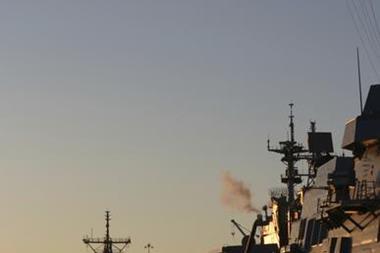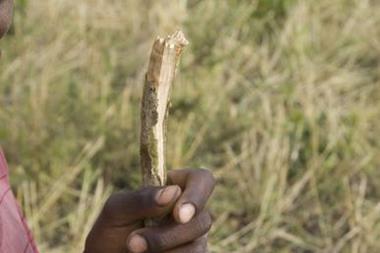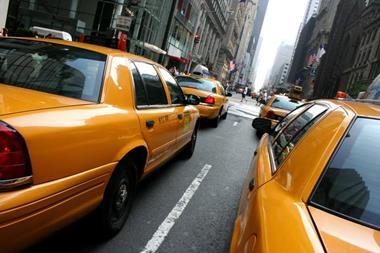Producing fake products is a useful source of income for organised crime and terrorist groups. And Cyprus, a relatively small island in the Mediterranean, is starting to play a pivotal role. Alan Waring explains
Counterfeit goods sales are not a victimless crime. The startling statistics worsen year by year, as I advised recently at a special seminar organised jointly by the US Embassy and the Turkish Cypriot Chamber of Commerce. Despite its small population and relatively small sales of counterfeit goods, Cyprus (particularly north Cyprus) has a growing special role in this trade that is much more disturbing.
The big picture
The European Commission’s latest report on counterfeiting and piracy for 2007 shows that counterfeiting and piracy cases and actions within the EU have increased ten-fold since 1999. The costs to EU member states and companies have been estimated (ICC 2005) at £250bn (€400bn in 2005 terms). Tax revenue and excise losses were estimated then to be £30bn (approximately €50bn). The OECD report (2007) on the Economic Impact of Counterfeiting and Piracy put the annual international trade in pirated goods as high as $500bn, which is larger than the individual GDPs of over 150 countries, including 21 of the EU member states. EUROPA (2008) cites similar data.
INTERPOL’s statement describes the overall problem thus. ‘Trademark counterfeiting and copyright piracy are serious intellectual property (IP) crimes that defraud consumers, threaten the health of patients, cost society billions of dollars in lost government revenues, foreign investments or business profits and violate the rights of trademark, patent, and copyright owners. Fake products pose a significant safety threat to consumers worldwide. Unsuspecting customers and patients put their health, and even lives, in jeopardy each time they use fake medicines, alcoholic beverages, food products and travel in automobiles or aircraft maintained with substandard counterfeit parts.’
A ‘new’ threat
The counterfeiting industry has become a very lucrative business for organised criminals supported by a myriad of small-time distributors and outlets. These gangs often work in syndicates from region-to-region and country-to-country. For example, typically capital financing will be arranged in one country, production in another, supply chain and trans-shipment through various other countries, distribution and sales within target countries and banking of revenues somewhere else. Money laundering is usually an integral part of the process.
However, in addition to the damage cited by INTERPOL, the most ominous development in the past decade has been the ‘Al Qaeda connection’. International terrorists are also now making and/or distributing fakes as an easy, low-cost, inconspicuous and low risk way to raise funds. The phenomenon of terrorist involvement is not new but the Al Qaeda dimension is. There is some hard evidence and much circumstantial evidence to indicate that terrorists and criminal syndicates are now collaborating in this activity. Examples include:
• terrorist bombing of HSBC Bank, Istanbul, November 2003 - arrested suspects had prior arrests for selling counterfeit goods in Istanbul
• suspects arrested in Paris, October 2002, for goods counterfeiting had previous convictions for terrorist offences and belonged to the Salafist terrorist group
• informed sources report that an identified terrorist in the Middle East who engages in counterfeit distribution holds meetings in Cyprus with counterfeit syndicate members.
In summary, the nature of the problem in the European context is as follows.
• Production and distribution of counterfeit goods undermine legitimate trade and markets and damage national economies as well as companies and people.
• In Europe, counterfeit goods are usually made outside the EU and trans-shipped/sold into the EU.
• There is multinational separation of capital, production, supply chain and distribution (typically, manufacture in Asia, trans-shipment through Middle East/Mediterranean, sales into mainland EU).
“There has to be cooperation and collaboration between government, law enforcement, business community and the public.
• Low risks and high returns are attractive to both organised criminals and terrorists.
• Terrorists in particular require funding for major logistics.
• Countries with lax law enforcement, obscure legislation, weak judicial penalties, relaxed financial systems, weak trans-shipment controls, corrupt societies and porous borders are most attractive to both organised criminals and terrorists.
The Cyprus context
Cyprus has a small population. Although sales of counterfeit goods are known to occur in Cyprus, for example computer software, the scale is inherently self-limiting. However, despite its relatively benign appearance in terms of local counterfeit production and local sales, in fact Cyprus is recognised as having a pivotal role in both the flow of counterfeit goods into Europe from the Middle East and Asia and the movement and laundering of ‘dirty’ money connected with counterfeiting.
Cyprus is seen by organised criminals from Turkey, Lebanon and Syria as a very convenient major brokerage and forwarding/trans-shipment centre. My colleagues, including Iain Grant, founding co-chair of the INTERPOL intellectual property crime action group, all of whom are intimately familiar with the problem, are agreed that senior counterfeit syndicate members based in the Middle East and linked internationally to other gangs, including terrorists, meet regularly in Cyprus to develop strategies and markets and make deals.
The republic in the government-controlled areas has made significant progress in IP rights protection. Recently, for example, the police raided and shut down in Limassol a huge Dreambox international pirating operation of satellite channels. There is an imbalance between pro-active IP rights activity in the republic and laissez-faire in north Cyprus.
However, rights protection in Cyprus is made more difficult owing to the fact that administration, legislation and law enforcement in north Cyprus are significantly different to that of the republic in many respects. The republic is also bound by EU law and the EU Copyright Directive whereas north Cyprus does not recognise such controls. For example, product and software copying in north Cyprus for local consumption is reported to be widespread.
There is scope for greater efforts from north Cyprus in its own self-interest to harmonise with EU law on IP rights. There appears to be only limited cooperation and collaboration on law enforcement issues generally across the ‘Green Line’ and this undoubtedly affects rights protection.
Gambling establishments such as casinos and unregulated finance institutions (money lenders, brokers, transfer offices, etc) are illegal in the republic but not in north Cyprus. Whereas such businesses may be perfectly respectable and law abiding, global history and experience suggests that many are likely to be conduits for money laundering by organised criminals, including those engaged in the counterfeit trade. The debate about allowing casinos to operate in the government controlled areas needs to address this issue.
Problem for Cyprus
Failure to take seriously the threats posed by weak IP rights protection will have serious consequences, whether in the republic-controlled areas or in north Cyprus. For example:
• government taxation authorities lose VAT on every counterfeit item sold
• many counterfeit products entering Cyprus will be defective and/or dangerous from a health and safety standpoint
“Fake products pose a significant safety threat to consumers worldwide.
• the image and reputation of the country (on which tourism, inward investment, international credibility and political stature depend) are damaged by media reports and public perceptions linking Cyprus to counterfeiting, organised crime and terrorism, and more so if effective controls are not implemented.
• a divided Cyprus may make surveillance and arrest of suspects much harder
• different law enforcement structures, attitudes and standards between the republic and north Cyprus may be relevant
Just how does a divided island create a powerful, coordinated response to the common threat?
Deterrence and control
There are some guiding principles for action that apply anywhere in the world.
• A pro-active, integrated and strategic approach is required from government, law enforcement and businesses rather than simply low level, reactive and piecemeal tactics; there must be a political will to succeed.
• Cut off the snake’s head not just the tail – seriously disrupt the counterfeiters’ financing, production, supply chain, distribution and sales. It is no good just arresting local counterfeit goods sellers.
• There has to be cooperation and collaboration between government, law enforcement, business community and the public, for example, a zero tolerance campaign, public education and robust law enforcement.
• Joined-up thinking is required to tackle co-jointly: (a) organised crime (including counterfeiting; trafficking of goods, drugs, people, currency and arms; money laundering and internet crime); (b) corruption, and (c) terrorism.
• Cross-border and multinational cooperation and collaboration by law enforcement and counter-terrorist agencies are essential.
• High integrity police, law enforcement and judiciary are a must.
• And there have to be extremely tough penalties for convictions.
If these global principles were all applied throughout Cyprus, they would significantly boost IP rights protection as well as the tax revenues, public safety and international stature of the whole country.
Postscript
Dr Alan Waring is international risk management consultant and chief executive of the Asia Risk Group, and an adjunct professor at the centre for corporate governance and financial policy, HKBU Hong Kong, Email: info@asiarisk.net.
This article is based on a joint paper with Stephen Sayell, vice president at Asia Risk and a former senior investigator with the Independent Commission Against Corruption in Hong Kong and a CID unit in the UK. Contributors also include Asia Risk consultant Iain Grant, founding co-chair and member of INTERPOL intellectual property crime action group and former worldwide director of Anti-Piracy for the International Music Industry, and Robert Youill, former Asia Risk consultant and former regional anti-piracy director for Asia-Pacific for the international music industry.

















